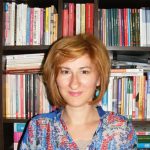Barbara Wall (University of Copenhagen)
20 April 2018
It is often argued that works of history should be based on verifiable data, but data cannot become fact without being incorporated into a narrative. Thus, every telling of the past inevitably becomes part of a narrative. In other words, the idea of the one and only ‘true’ past is an illusion that can never be reconstructed, possible versions of the past can only be constructed. This also rings true for “heroes” of the Korean past, the most prominent examples are, for example, King Sejong, Yi Sunsin, or Park Chung Hee. Our perception of them mainly relies on the narratives constructed around them, often embedded in a strong ideological agenda. This lecture focuses on the tragic “hero” Crown Prince Sado and explores how he is constructed in textbooks, but also in popular culture.
Crown Prince Sado’s tragic death in a rice chest in 1762 is one of the most discussed incidents in Korean history. These discussions are not limited to the academic world, but are also mirrored in Korean popular culture. In contrast to historical sources that depict Sado as a psychopath who had to be killed for the sake of the Yi royal house, in popular culture he appears in more sympathetic light. Here political power struggles are held responsible for the alienation between Sado and his father King Yǒngjo (r. 1724–1776), which finally ended in filicide.
Sado’s forced death was a heavy burden for King Chǒngjo (r. 1776–800), not only as Sado’s son, but also as Yǒngjo’s successor to the throne. Chǒngjo was torn between his wish to commemorate his father and the duty to protect the moral authority of the Yi royal house. Chǒngjo had to romanticize the circumstances of Sado’s death to legimitate himself as a king. But why is Sado still romanticized in today’s popular culture? This lecture discusses how Sado is constructed as national hero and symbolic victim in the fight against the establishment.
Barbara Wall is an assistant professor in Korean Studies at the University of Copenhagen. She holds a BA in Japanese Studies and Classical Chinese from Heidelberg University, an MA in Confucian Studies from Sungkyunkwan University and a PhD in Korean Literature from Ruhr University Bochum. Her main research interests are the circulation, translation and adaptation of literary narratives in Korea, Japan and China. At the moment she is working on her first book titled “Mapping The Journey to the West as Literary Network: A Visual Approach to the Dynamic Text in Korea from the 14th Century to Today.”


